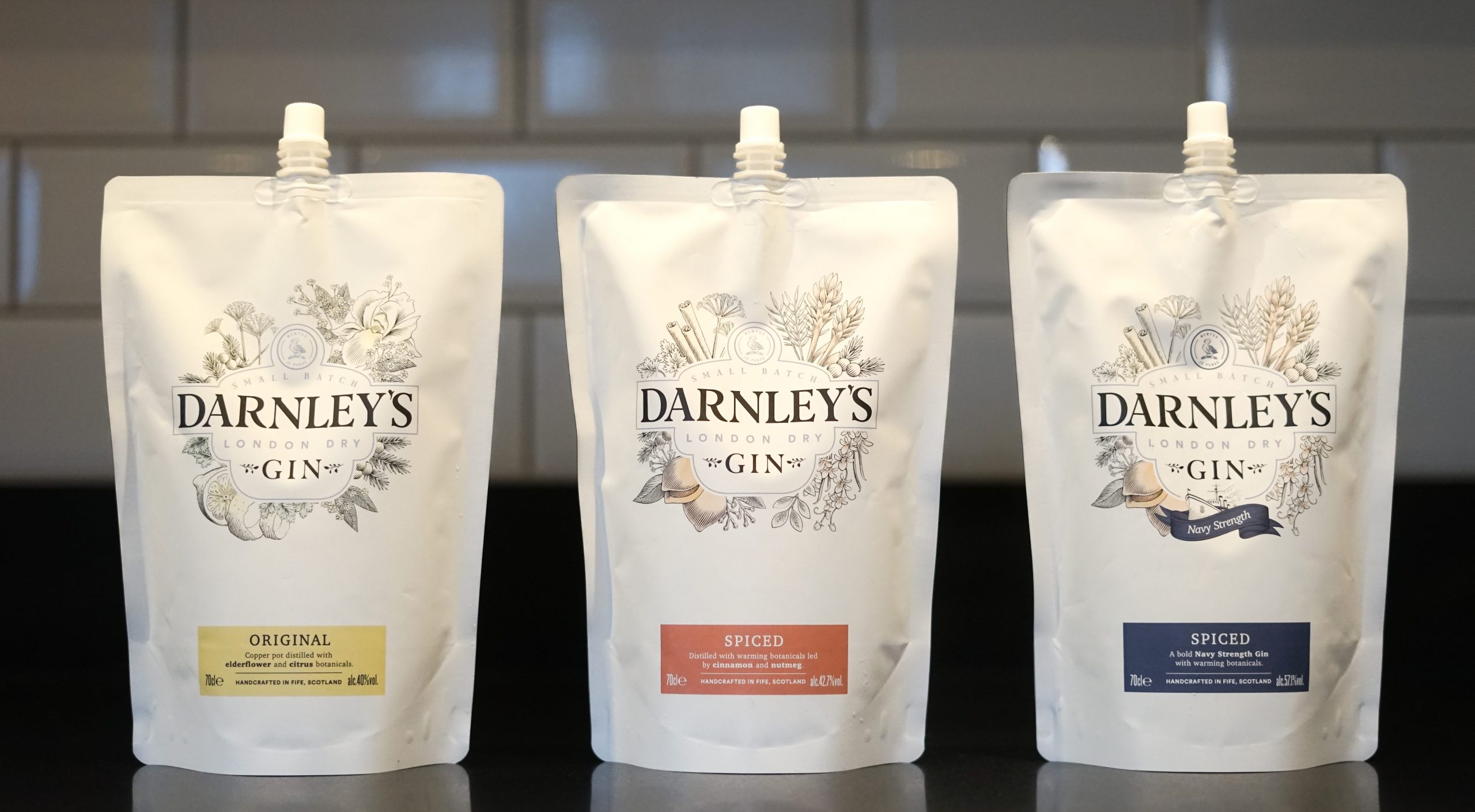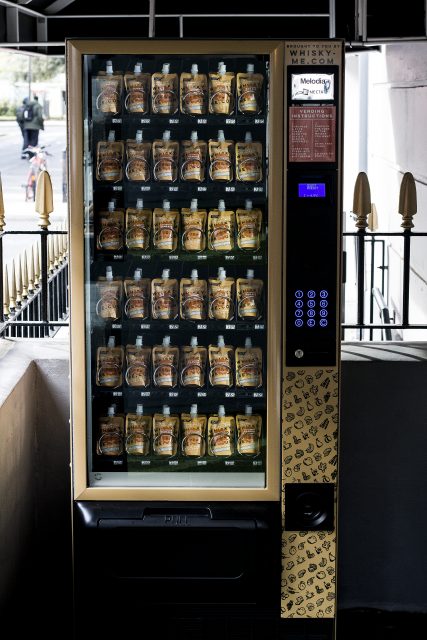Drinks pouches: the new normal or just another fad?
With brands turning their focus towards sustainability, and the pandemic creating a spike in at home drinking, easy-to-deliver plastic drinks pouches are becoming a viable packaging method for new products. But is the new fad set to stick, or will plastic pouches fall flat?

In many ways drinks pouches are not a bad idea; durable and malleable, they can be easily delivered without fear of breaking or smashing. They can even fit right through the letter box. And unlike alternative packaging methods, like aluminium cans or bag-in-box, they can be re-filled with very little effort.
Darnley’s Gin, based in Fife, Scotland, this week launched a range of recyclable gin pouches. The launch comes as part of the distillery’s 2022 sustainability strategy, as the lightweight nature of the plastic pouches means reducing a significant amount of CO2 emissions when transporting the products, which usually come in glass bottles.
The new range is primarily aimed at existing fans, able to order their re-fill pouches and decant the gin into their Darnley’s bottles before returning the pouch by Freepost back to Darnley’s HQ for recycling.
William Wemyss, Founder of Darnley’s Gin, comments: “Our sustainability plans for the brand are one of constant improvement and the launch of our gin pouches is part of this journey. We hope Darnley’s Gin fans will not only enjoy these gins, but also return the pouches so the full environmental benefits of this initiative can be realised.”
Darnley’s Gin is not the first to make the move out of glass and into plastic pouches.
Thomas Aske and Tristan Stephenson began their whisky subscription service in 2017.
Whisky Me is a subscription-based membership which sends 50 ml samples of premium single malt whisky to our members on a monthly schedule. With a subscription model, their “goodbye snobbery, hello whisky” ethos breaks down preconceived notions of the classic whisky drinker, and rebrands the spirit for a younger crowd.
The company now boasts more than 9,000 members, with more than 100,000 individual whisky packages sent.
“A lot of what we tried to do with Whisky Me is to do away with the baggage and the tropes that follow whisky, especially scotch whisky, around,” Stephenson told db back in August. “Everything we’ve done is to challenge that orthodox and create a more fun and playful whisky experience.”

From the packaging to digital marketing strategy, every element of the branding turns tradition on its head.
“If you look at a lot of scotch whisky bottles,” Stephenson continues, “the imagery is often of burns and glens and Highland stags. We thought: Well, what’s the total opposite of that? How can we come up with a brand identity that does away with all of that?”
Partner Content
Beyond the motivation to challenge the orthodox, Whisky Me’s packaging provides a viable alternative to glass, which is difficult and expensive to transport.
“There’s a place for glass on back bars,” says Stephenson, “but when you’re starting to move whisky around through couriers and via mail, glass really falls down.
“It’s heavy, it breaks, it needs a huge amount of packaging to protect it. And it costs quite a lot to send as well. We use pouches because it mitigates all of those concerns. They fit through a letterbox, they’re lightweight, they never break, and to a lesser extent it challenges convention again.”
The pouches themselves are composed of four laminate layers. Nowhere in the UK currently offers curbside recycling of such material, but Whisky Me does offer a take back service for their subscribers.
“We ask members to return 12 empty pouches,” Stephenson explains. “You collect them as you go, which is not a bad thing to do anyway because they’re a record of the whiskies you tasted. Once you send us 12 back, we’ll send you a free pouch of whisky as a reward, and cover the cost of actually getting them recycled.”
The brand also encourages its members to get inventive with the pouches. Stephenson adds: “I actually do a lot of running, so I often fill my empty pouches with pureed food I can take on a run and then squirt into my mouth.”

Drinks pouches may be easily refillable, but the challenges to recycling plastics is a major downside. Another alternative to glass which has seen increased demand, particularly in the wine industry, is aluminium cans.
Canned wine has environmental benefits over glass, being more easily recyclable, lighter and more efficient to transport. According to Alko, the national alcoholic beverage retailing monopoly in Finland, almost half (0.45375kg) of the CO2 emissions of glass could be saved by switching to alternative packaging.
Beverage cans also have the highest global recycling rate of all packaging substrates, with 75% of all aluminium ever produced still in use today.
Even so, light-weight and easily transportable plastic drinks pouches are on the rise post-lockdown, as more of us are staying home to drink than ever before. According to Bacardi Limited’s 2022 Trends Report, much of the current growth in e-commerce is being driven by the US, with more than 65% of consumers in the country using an online service to purchase alcohol.
Pouches can also be easily frozen without risk of bursting, meaning the innovation doesn’t just stop with transportation.
Discount retailer Home Bargains even came out with its own line of frozen cocktails in pouches late last year, highlighting the diversity of brands dipping their toe in the plastic pouch pool.
Related news
The Castel Group rocked by Succession-style family rift




